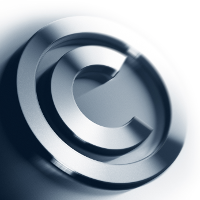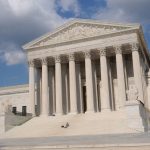 CPIP has published a new policy brief by CPIP Senior Fellow for Innovation Policy Jonathan Barnett entitled The Long Shadow of the Blackberry Shutdown That Wasn’t. The policy brief looks at how the Blackberry litigation and the “patent troll” narrative ultimately contributed to the Supreme Court’s 2006 decision in eBay v. Read more
CPIP has published a new policy brief by CPIP Senior Fellow for Innovation Policy Jonathan Barnett entitled The Long Shadow of the Blackberry Shutdown That Wasn’t. The policy brief looks at how the Blackberry litigation and the “patent troll” narrative ultimately contributed to the Supreme Court’s 2006 decision in eBay v. Read more
Tag: Google
Twenty Years Later, DMCA More Broken Than Ever
 With Section 512 of the DMCA, Congress sought to “preserve[] strong incentives for service providers and copyright owners to cooperate to detect and deal with copyright infringements that take place in the digital networked environment.”[1] Given the symbiotic relationship between copyright owners and service providers, Congress meant to establish an online ecosystem where both would take on the benefits and burdens of policing copyright infringement. Read more
With Section 512 of the DMCA, Congress sought to “preserve[] strong incentives for service providers and copyright owners to cooperate to detect and deal with copyright infringements that take place in the digital networked environment.”[1] Given the symbiotic relationship between copyright owners and service providers, Congress meant to establish an online ecosystem where both would take on the benefits and burdens of policing copyright infringement. Read more
Stream Ripping Emerges as the New Face of Music Piracy
Cross-posted from the Mister Copyright blog.
 As formats change and advances in technology continue to transform the way we listen to music, new methods of pirating content are never far behind. What started with the analog dubbing and bootlegging of cassettes forty years ago evolved with the digital age into CD burning and MP3 sharing, eventually leading to a chaotic illegal downloading landscape at the turn of the century that would force the music industry to develop novel anti-piracy efforts and distribution models. Read more
As formats change and advances in technology continue to transform the way we listen to music, new methods of pirating content are never far behind. What started with the analog dubbing and bootlegging of cassettes forty years ago evolved with the digital age into CD burning and MP3 sharing, eventually leading to a chaotic illegal downloading landscape at the turn of the century that would force the music industry to develop novel anti-piracy efforts and distribution models. Read more
CPIP’s Sandra Aistars & Scalia Law Alumnae Urge Federal Circuit to Protect Creators and Rein In Fair Use in Oracle v. Google
 On February 17, 2017, CPIP Senior Scholar Sandra Aistars filed an amicus brief in Oracle v. Google, a copyright case currently before the Federal Circuit. Prof. Aistars worked in conjunction with Scalia Law alumnae Antigone Peyton and Jennifer Aktins of Cloudigy Law and third-year law student Rebecca Cusey to file the brief on behalf of 13 intellectual property scholars, including CPIP’s Matthew Barblan, Devlin Hartline, Sean O’Connor, Eric Priest, and Mark Schultz. Read more
On February 17, 2017, CPIP Senior Scholar Sandra Aistars filed an amicus brief in Oracle v. Google, a copyright case currently before the Federal Circuit. Prof. Aistars worked in conjunction with Scalia Law alumnae Antigone Peyton and Jennifer Aktins of Cloudigy Law and third-year law student Rebecca Cusey to file the brief on behalf of 13 intellectual property scholars, including CPIP’s Matthew Barblan, Devlin Hartline, Sean O’Connor, Eric Priest, and Mark Schultz. Read more
What Would Judge Gorsuch Mean for Fair Use?
 On February 1st, President Trump nominated Neil Gorsuch to fill the Supreme Court seat left vacant by the passing of Justice Antonin Scalia. The announcement opened the floodgates of prognostication as to how the appellate court judge from Colorado might sway the Court in the coming terms, with forecasters pouring over his past decisions in an attempt to get into the head of the potentially game-changing jurist. Read more
On February 1st, President Trump nominated Neil Gorsuch to fill the Supreme Court seat left vacant by the passing of Justice Antonin Scalia. The announcement opened the floodgates of prognostication as to how the appellate court judge from Colorado might sway the Court in the coming terms, with forecasters pouring over his past decisions in an attempt to get into the head of the potentially game-changing jurist. Read more
Despite What You Hear, Notice and Takedown is Failing Creators and Copyright Owners
 In a recent op-ed in the LA Times, Professors Chris Sprigman and Mark Lemley praise the notice and takedown provisions of the Digital Millennium Copyright Act (DMCA) as “a bit of copyright law worth saving.” They argue that Section 512 of the DMCA continues to serve its purpose of balancing the rights of copyright owners and creators with those of Internet service providers (ISPs), while leaving both sides only “slightly disappointed.” Read more
In a recent op-ed in the LA Times, Professors Chris Sprigman and Mark Lemley praise the notice and takedown provisions of the Digital Millennium Copyright Act (DMCA) as “a bit of copyright law worth saving.” They argue that Section 512 of the DMCA continues to serve its purpose of balancing the rights of copyright owners and creators with those of Internet service providers (ISPs), while leaving both sides only “slightly disappointed.” Read more
Do As I Say, Not As I Do: Google’s Patent Transparency Hypocrisy
 It is common today to hear that it’s simply impossible to search a field of technology to determine whether patents are valid or if there’s even freedom to operate at all. We hear this complaint about the lack of transparency in finding “prior art” in both the patent application process and about existing patents. Read more
It is common today to hear that it’s simply impossible to search a field of technology to determine whether patents are valid or if there’s even freedom to operate at all. We hear this complaint about the lack of transparency in finding “prior art” in both the patent application process and about existing patents. Read more
Three Years Later, DMCA Still Just as Broken
By Matthew Barblan & Kevin Madigan
 In 2013, CPIP published a policy brief by Professor Bruce Boyden exposing the DMCA notice and takedown system as outdated and in need of reform. The Failure of the DMCA Notice and Takedown System explained that while Section 512 of the DMCA was intended as a way for copyright owners and service providers to work together to fight infringement in the digital age, the notice and takedown system has been largely ineffective in managing the ever-increasing amount of piracy. Read more
In 2013, CPIP published a policy brief by Professor Bruce Boyden exposing the DMCA notice and takedown system as outdated and in need of reform. The Failure of the DMCA Notice and Takedown System explained that while Section 512 of the DMCA was intended as a way for copyright owners and service providers to work together to fight infringement in the digital age, the notice and takedown system has been largely ineffective in managing the ever-increasing amount of piracy. Read more
Second Circuit Deepens Red Flag Knowledge Circuit Split in Vimeo
 The Second Circuit’s recent opinion in Capitol Records v. Vimeo is, to put it mildly, pretty bad. From its convoluted reasoning that copyrights under state law for pre-1972 sound recordings are limited by the DMCA safe harbors, despite the explicit statement in Section 301(c) that “rights or remedies” under state law “shall not be annulled or limited” by the Copyright Act, to its gutting of red flag knowledge by limiting it to the nearly-impossible situation where a service provider actually knows that a specific use of an entire copyrighted work is neither fair nor licensed yet somehow doesn’t also surmise that it’s infringing, it’s hard to see how either result is compelled by the statutes, much less how it was intended by Congress. Read more
The Second Circuit’s recent opinion in Capitol Records v. Vimeo is, to put it mildly, pretty bad. From its convoluted reasoning that copyrights under state law for pre-1972 sound recordings are limited by the DMCA safe harbors, despite the explicit statement in Section 301(c) that “rights or remedies” under state law “shall not be annulled or limited” by the Copyright Act, to its gutting of red flag knowledge by limiting it to the nearly-impossible situation where a service provider actually knows that a specific use of an entire copyrighted work is neither fair nor licensed yet somehow doesn’t also surmise that it’s infringing, it’s hard to see how either result is compelled by the statutes, much less how it was intended by Congress. Read more
Advertiser Pledge Sets Example of Accountability in the Fight Against Piracy
Cross-posted from the Mister Copyright blog.
 It should come as no surprise that popular websites make money by hosting advertisements. Anyone surfing the web has undoubtedly been bombarded with ads when visiting certain sites, and for websites that offer free services or user experiences, advertisements are often the only way to generate revenue. Read more
It should come as no surprise that popular websites make money by hosting advertisements. Anyone surfing the web has undoubtedly been bombarded with ads when visiting certain sites, and for websites that offer free services or user experiences, advertisements are often the only way to generate revenue. Read more

